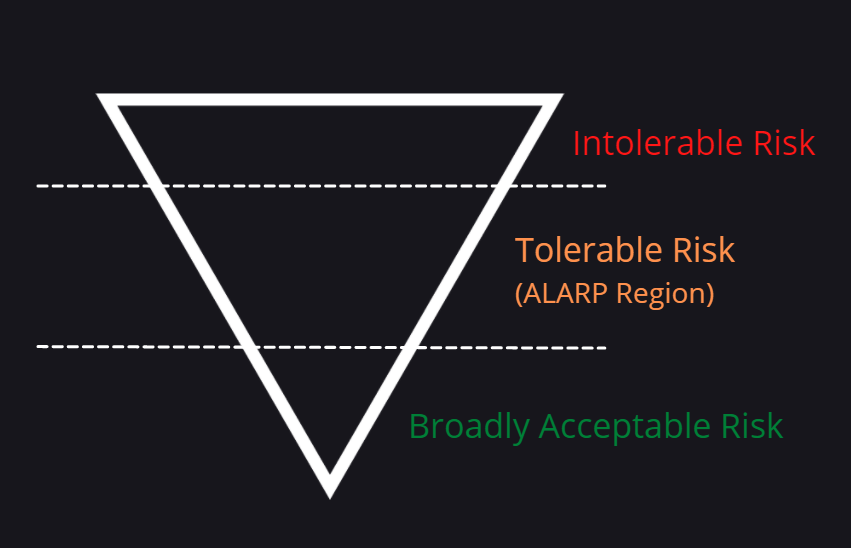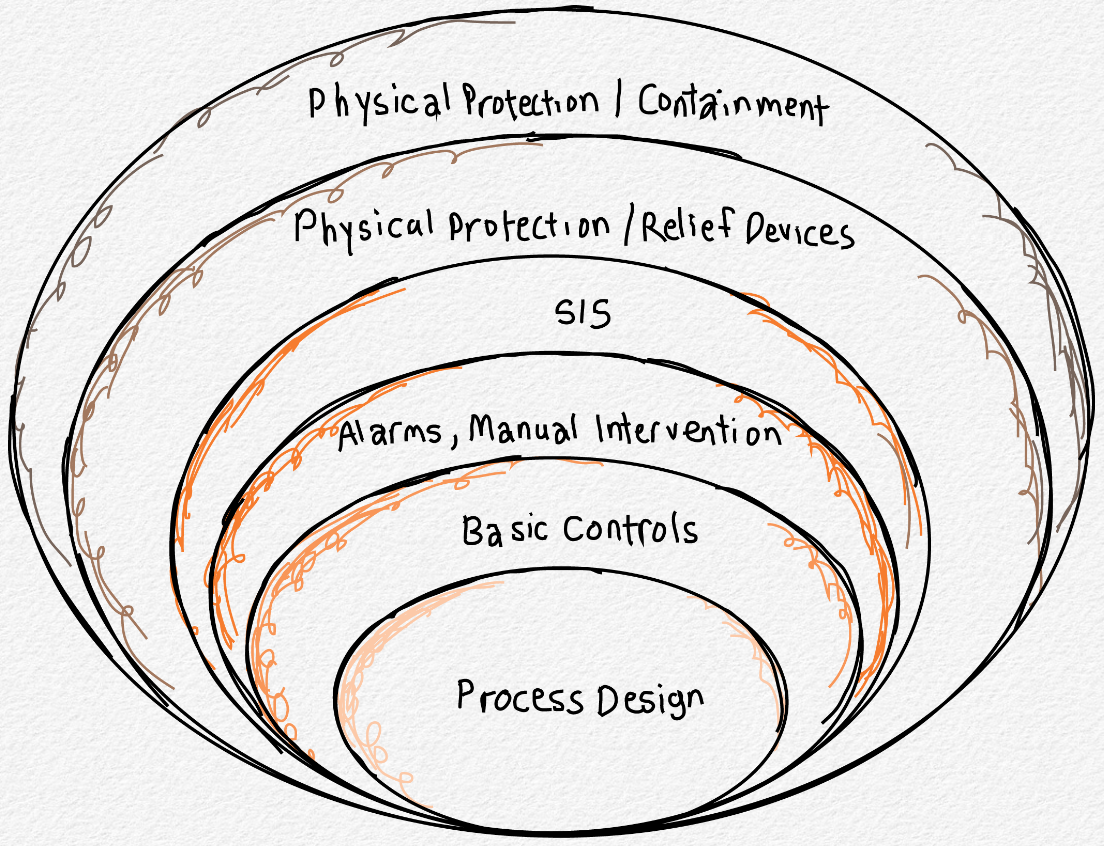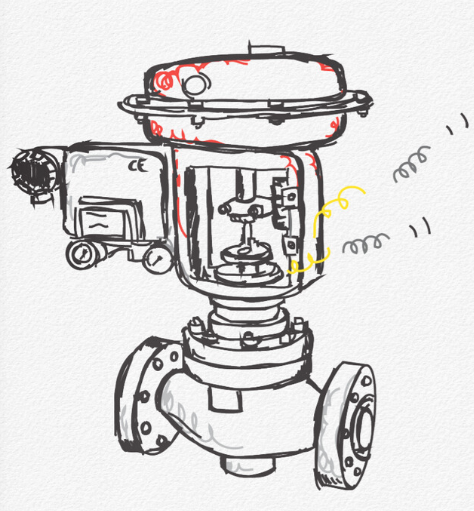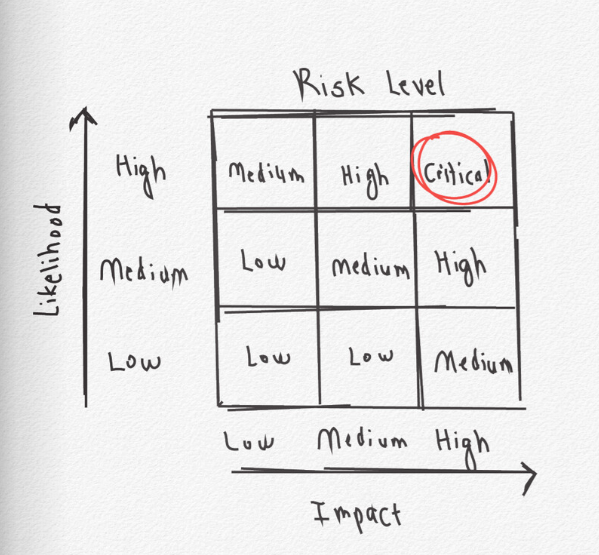
Safety Integrity Level (SIL)
A SIL study is a collaborative decision making process that allows a PHA team to determine the reliability of safeguards used to prevent specific consequences which were identified in the risk assessment process.

What does ALARP mean?
When designing industrial facilities, it is imperative to design the system as safe as possible, so as to minimize the risk of injury, illness or even death for those who work at the plant. However, no industrial activity is entirely free from risk. That being said, companies try to achieve a risk level that satisfies to requirement to be "as low as reasonably practicable", or "ALARP" for short.

What is a LOPA?
LOPA stands for a Layer of Protection Analysis which is a collaborative decision-making process using quantified probabilities and explicit tolerable frequencies for specific consequences as the decision criteria for risk acceptance.

Double Jeopardy in a PHA
When conducting a process hazard analysis, it is important for the HAZOP team to methodically identify, as much as possible, all the credible initiating events to ensure that the resulting hazardous scenarios include adequate safeguards or recommendations to reduce the risk to an acceptable level. However, a line has to be drawn when considering what is a credible initiating event and what is not.

How to Node P&IDs for a HAZOP
To make a chemical or industrial process easier to analyze in a HAZOP study, the process is split up into different sections, called nodes. It is often best practice to determine nodes based on consistent parts of a process, whether they are portions of the main process or separate support systems.

What is a HAZOP Safeguard?
For every hazardous consequence analyzed as part of a HAZOP, the HAZOP team has to identify what safeguards or mitigating factors exist to reduce the risk of the event. Simply put, safeguards are anything that will effectively prevent or mitigate the hazardous consequence.

What is a HAZOP?
For every hazardous consequence analyzed as part of a HAZOP, the HAZOP team has to identify what safeguards or mitigating factors exist to reduce the risk of the event. Simply put, safeguards are anything that will effectively prevent or mitigate the hazardous consequence.

